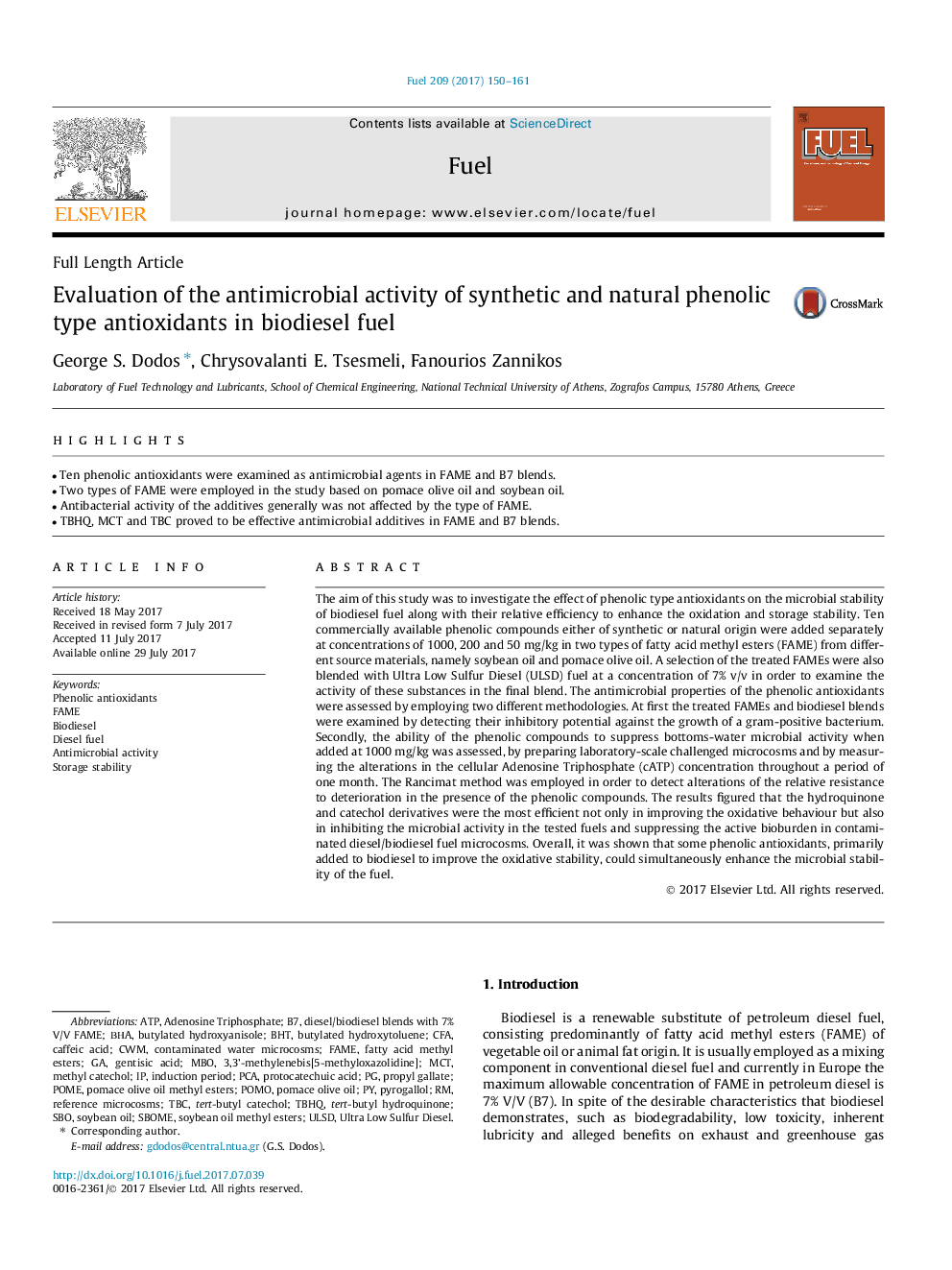| کد مقاله | کد نشریه | سال انتشار | مقاله انگلیسی | نسخه تمام متن |
|---|---|---|---|---|
| 6473832 | 1424955 | 2017 | 12 صفحه PDF | دانلود رایگان |
- Ten phenolic antioxidants were examined as antimicrobial agents in FAME and B7 blends.
- Two types of FAME were employed in the study based on pomace olive oil and soybean oil.
- Antibacterial activity of the additives generally was not affected by the type of FAME.
- TBHQ, MCT and TBC proved to be effective antimicrobial additives in FAME and B7 blends.
The aim of this study was to investigate the effect of phenolic type antioxidants on the microbial stability of biodiesel fuel along with their relative efficiency to enhance the oxidation and storage stability. Ten commercially available phenolic compounds either of synthetic or natural origin were added separately at concentrations of 1000, 200 and 50Â mg/kg in two types of fatty acid methyl esters (FAME) from different source materials, namely soybean oil and pomace olive oil. A selection of the treated FAMEs were also blended with Ultra Low Sulfur Diesel (ULSD) fuel at a concentration of 7% v/v in order to examine the activity of these substances in the final blend. The antimicrobial properties of the phenolic antioxidants were assessed by employing two different methodologies. At first the treated FAMEs and biodiesel blends were examined by detecting their inhibitory potential against the growth of a gram-positive bacterium. Secondly, the ability of the phenolic compounds to suppress bottoms-water microbial activity when added at 1000Â mg/kg was assessed, by preparing laboratory-scale challenged microcosms and by measuring the alterations in the cellular Adenosine Triphosphate (cATP) concentration throughout a period of one month. The Rancimat method was employed in order to detect alterations of the relative resistance to deterioration in the presence of the phenolic compounds. The results figured that the hydroquinone and catechol derivatives were the most efficient not only in improving the oxidative behaviour but also in inhibiting the microbial activity in the tested fuels and suppressing the active bioburden in contaminated diesel/biodiesel fuel microcosms. Overall, it was shown that some phenolic antioxidants, primarily added to biodiesel to improve the oxidative stability, could simultaneously enhance the microbial stability of the fuel.
Journal: Fuel - Volume 209, 1 December 2017, Pages 150-161
